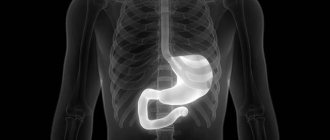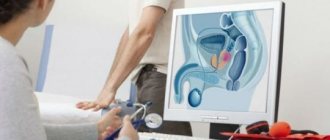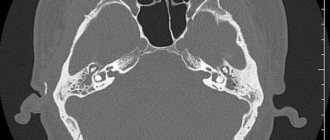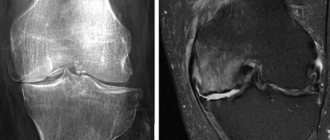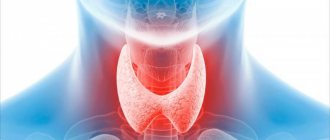A spermogram is performed in the following cases:
- to determine possible causes of infertility in a couple;
- in preparation for treatment using assisted reproductive technologies (IVF, ICSI);
- if male infertility is suspected for various reasons - due to injuries to the genital organs, varicocele, testicular diseases, hormonal disorders;
- to diagnose possible diseases of the male reproductive system;
- if the man is already undergoing treatment for infertility;
- if a man wants to become a sperm donor;
- if a man wants to freeze sperm for later use (carry out a cryopreservation procedure).
In our Euromed In Vitro clinic (St. Petersburg) you can take a spermogram, get its interpretation and consult with a specialist about the results.
You can make an appointment by phone: + 7 812 327 03 01
Appointment for examination
Spermogram is one of the effective methods for diagnosing male infertility
A spermogram is usually prescribed by a doctor, but the patient can have sperm analyzed at his own request in a paid clinic. A doctor's prescription is not required, but interpretation must only be made by a doctor.
There are a number of indications and conditions when a spermogram is required to make a diagnosis and clarify further examination.
Main indications for performing a spermogram:
- Infertile marriage. Couples register with an infertility specialist (reproductologist) usually after a year or two of not conceiving. In this case, the doctor recommends that both spouses undergo examination. The man takes a spermogram, smears from the urethra to exclude the presence of diseases, and, if necessary, undergoes an ultrasound of the prostate. Based on all the tests, a conclusion is drawn, the cause of infertility is clarified and a plan for its elimination is drawn up.
- Sperm donation. If a man wants to become a sperm donor, he must take a spermogram and be tested for various STDs.
- Infertility as a result of disease. If a man has already been diagnosed with infertility as a result of any disease (for example, injuries, infections, hormonal imbalances), a spermogram is taken to determine the patient’s current condition and to check the effectiveness of treatment, if it was prescribed.
- Preparing for IVF. In vitro fertilization is a difficult and expensive process. Before such a procedure, it is imperative that both spouses undergo tests and undergo a full check. The spermogram determines the number of sperm with deformations and genetic defects. There are even sperm standards for IVF. If it does not meet the norm, doctors may not undertake IVF.
- Preventative examination. A man can voluntarily take a spermogram to check his condition. It does not take into account whether he is married and whether he plans to have children.
For any indication, you should familiarize yourself with the rules for preparing for a spermogram.
Preparation and procedure at INVITRO
Proper preparation for analysis is the key to reliable results.
The reliability of the results depends not only on the laboratory, but also on the preparation of the patient and compliance with the rules for collecting the test material.
Preparation consists of 3-7 days of abstinence (usually they ask you to abstain from sexual intercourse and masturbation for at least 3 days), as well as giving up alcohol and, if possible, smoking during these days. It is undesirable to overheat for several days before taking the test, not to go to the sauna or bathhouse, or to sunbathe.
The procedure itself is extremely simple. On the morning of the procedure, you need to come to the clinic and collect sperm in a sterile glass in a special room. Sperm should be obtained only naturally, that is, through masturbation. It must be immediately collected in a sterile container at the moment of ejaculation; sperm cannot be collected from other surfaces. It is not advisable to collect sperm from a condom, although some laboratories allow this.
It is important to collect the entire volume of sperm, especially the first one - if this moment was missed, the result may be unreliable.
If sperm collection occurs at home, the container with the collected material is covered with a clean piece of gauze or a sterile bandage. It is advisable to take the material to the laboratory within an hour, avoiding freezing and heating of the sperm.
The sperm donation procedure itself is safe, but has some contraindications when collecting material is impossible or impractical due to possible unreliability of the results:
- A spermogram is not taken if there is a suspicion of an inflammatory process, an infection in the acute stage, at a body temperature of 38-40 degrees.
- It is not recommended to take the test if you have completed a course of antibiotic therapy in the last 3 months.
- If the period of abstinence has been violated, donating sperm immediately after sexual intercourse is not recommended. The result will be unreliable.
- Semen analysis is not possible after taking certain medications (you need to tell your doctor about this) and after drinking alcoholic beverages.
Preparing for sperm donation
- In preparation for the test, it is recommended to abstain from ejaculation for 4-5 days
- Before the spermogram, you should refrain from chronic intoxications (alcohol, smoking) and thermal procedures (baths, saunas) for a week.
- In case of acute diseases and exacerbation of chronic ones, as well as if you are taking medications, consult with your doctor about the possibility of donating ejaculate.
The main method of obtaining sperm is masturbation. Before collecting ejaculate, you must urinate and thoroughly wash your hands and penis. The sperm is collected in a sterile container and then sent to the laboratory. If part of the sperm has been lost, it should not be placed in the container, but reported on the analysis form.
If difficulties arise in obtaining ejaculate in the laboratory, you can obtain biomaterial at home. The container must be delivered to the laboratory within 1 hour and transported without strong mechanical stress in heat (from 20 to 37C). However, the most reliable option would be to get tested in our clinic. We make sure that the sperm donation process is as comfortable as possible for the man.
What are sperm, seminal fluid and spermatozoa?
The terms “sperm” and “seminal fluid” are synonymous and mean a white-yellow mucous fluid that is released from the male genital tract during orgasm (ejaculation, ejaculation).
The term "sperm" refers to the male reproductive cells that are contained in semen.
Sperm constitute only a small part of semen volume (no more than 5%).
Most of the sperm mass is a liquid consisting of water and organic and mineral substances dissolved in it, which is produced in the seminal vesicles and prostate gland.
Relationship between sperm parameters and a man’s ability to conceive a child
Despite the fact that the structure of sperm, the speed of their movement and their total content in sperm are the key parameters that determine the likelihood of conception, not in all cases a good analysis of the spermogram guarantees the fact that a man can conceive a child.
About 30% of men suffering from infertility have completely normal spermograms.
Poor spermogram indicators should also not be considered as a final conclusion about a man’s infertility, since even with poor sperm composition indicators, the possibility that a man can still conceive a child is not excluded.
Where can I get a spermogram?
A spermogram can be taken directly at our Intime family planning clinic with a referral from a urologist or andrologist, as well as at specialized diagnostic centers.
Assessment of sperm quality indicators
According to the standards established by the World Health Organization (WHO) in 2010, ejaculate is examined for the following indicators:
- The volume of ejaculate obtained. As a rule, a volume of at least 1.5 ml is considered normal. Insufficient ejaculate volume can have various reasons: retrograde ejaculation, prostate dysfunction, complete or partial obstruction of the ejaculatory ducts, or simply failure to abstain from sexual activity before taking the test.
- Acidity of ejaculate . It must be at least 7.2 pH. As a rule, male sperm has an acidity of 7.8-8.0 pH.
- Sperm count. A high-quality ejaculate contains at least 15 million sperm per 1 ml of volume or at least 39 million in the entire volume.
- Sperm motility. Active, motile sperm moving in a straight line must make up at least 32% of the total. Only such sperm are able to reach the egg and fertilize it.
- Analysis of the morphological normality of sperm - the structure of the sperm is assessed: the structure of the head, neck, middle part and flagellum. There are various methods for counting and assessing normal sperm. As a rule, the proportion of sperm with structural anomalies should not exceed 96%.
- Sperm viability. If motility meets the criteria for normospermia, there is no need to additionally determine the viability of immotile sperm. If the majority of sperm are immotile, their viability is assessed. Normally, viable sperm should be at least 58% of the total number.
- Content of leukocytes and erythrocytes in sperm. Semen may normally contain a small number of white blood cells. The content of red blood cells indicates certain deviations.
- The color of the semen is not a decisive factor in the evaluation, but a pink tint may indicate the presence of hypospermia (exceeding the number of red blood cells).
- Detection of antisperm antibodies. Their presence can be suspected by the sign of spermagglutination - gluing, sticking of sperm to each other.
- The period of sperm liquefaction (on average 40-60 minutes).
Based on the listed characteristics, the result of the spermogram is determined. Spermogram indicators can change in the same man over several months. This is influenced not only by diseases, but also by the general condition and lifestyle of a man. Therefore, a single spermogram rarely allows one to draw far-reaching conclusions.
As a rule, to complete the assessment, you need to compare at least two spermograms and see the indicators over time. Only in this case will it be possible to draw a conclusion about whether there are any pathologies in male sexual health.
spermogram in vitro
This post will help everyone who is planning a pregnancy or is already expecting a new addition to the family.
From the moment I was planning my pregnancy, that is, from 2009, until now, I have not taken any kind of tests. And in a variety of laboratories and centers. So I have a colossal amount of experience, and I want to share it with you. Some places were recommended by friends, but most places were recommended by doctors whom I trust (all of them really helped me become a mother of two beautiful children).
1) Hormones, infections, general blood count, hemostasis
Most often I took the science test. Almost all tests are ready within a day. This is especially important for hemostasis. The prices are lower than in other centers, the results have never been in doubt.
I mainly took PCR tests for infections at the Obstetrics and Gynecology Clinic named after. V.F. Snegireva. I prefer to have a doctor I know look into me, but I have been seeing this clinic for a long time and know many of them. I also took the 1st screening there.
I took progesterone and hCG at Invitro, because it had to be taken every 2 days, and Invitro is two steps from home, unlike Efis. The results are adequate, the prices are, of course, inflated. I also took a glucose tolerance test there, again due to its close location to home.
2) General urine test
Again, I confidently recommend Efis. And there are so many places. The main thing is not to take it to Invitro. Their urine tests are always equally ideal, it feels like they are just being drawn from the ceiling. I had glucose in my urine during both pregnancies. Sometimes more, sometimes less, but it was always there. And only in the Invitro analyzes it was not there.
3) APS antibodies, hCG antibodies
These tests cannot be taken everywhere. Many laboratories don't do them at all. Once I took it at my favorite “Efis” (they suddenly started accepting them), the results were incomprehensible.
My hematologist recommended taking it to a medical office (this is their profile). It's a long way to go, but it's a proven place.
4) Spermogram
This analysis is now accepted by all and sundry, although the special equipment necessary for this analysis is available in only a few places.
— human reproduction clinic “Altravita” (the results are correct, but this does not mean that you should immediately agree to treatment with them)
— department of reproduction of the Federal State Budgetary Institution NTsAGiP im. V.I.Kulakova
— IVF Department of the Obstetrics and Gynecology Clinic named after. V.F. Snegireva (it is worth taking it here if you are planning IVF, because the analysis immediately determines the viability of sperm and the prospects for IVF)
5) Ultrasound
This is perhaps the most pressing examination, especially for a pregnant woman. Therefore, you definitely shouldn’t do it with anyone. A bad specialist may not consider the problem in time, or may see a problem where there is none. At the 20th week of pregnancy, I was told that the fetus’s kidney was not visible, this was a pathology, and I might have to get rid of the baby. And then I had an ultrasound done by a normal specialist and found out that there was a pathology, but it was quite compatible with the child’s life and did not threaten him in any way.
Therefore, I will recommend not a place, but specific specialists.
— Sofya Yuryevna Batalova, Anna Yuryevna Cheremnykh (V.F. Snegirev Obstetrics and Gynecology Clinic)
— Stygar Arkady Mikhailovich (Art-Eco clinic)
Don't forget to get tested on time. Hand them in early if you have any concerns. Then there is a greater chance that the problem will be quickly found and help solve it.
Spermogram results
When interpreting spermogram indicators, reference values recommended by the World Health Organization in 2010 are used.
The ejaculate is designated by the term “normospermia” or “normozoospermia” if it meets the established standards: ejaculate volume is not less than 1.5 ml, the concentration of sperm in 1 ml is not less than 15 million, the total number of sperm in the entire volume is not less than 39 million, the proportion of motile sperm is not less than 40 %, the proportion of progressively motile sperm is at least 32%, the proportion of sperm with normal structure is at least 4%.
For ejaculate pathologies, the following terms are used:
- Aspermia is the absence of ejaculate: not only spermatozoa are absent, but also immature cells of spermatogenesis are absent.
- Oligospermia - ejaculate volume is below normal.
- Azoospermia is the absence of sperm in the ejaculate.
- Oligozoospermia - sperm concentration below the normative value.
- Asthenozoospermia is sperm motility below the normative value.
- Teratozoospermia is the morphology of sperm below the normative value.
- Leukospermia (pyospermia) is a too high concentration of leukocytes.
- Necrozoospermia is a decrease in the proportion of live sperm in the ejaculate (less than 58%).
If the deviations are combined with each other, the terms “oligoasthenoteratozoospermia”, “asthenoteratozoospermia” and so on are used.
Is it possible to improve sperm count?
In many cases this is quite possible. If you have received a spermogram, you should contact a urologist-andrologist within 1-2 weeks and find the reason for the decrease in sperm quality. As a rule, this reason is removable. After undergoing treatment, a man can take a spermogram again.
Sometimes the spermogram improves after lifestyle adjustments. Quitting alcohol and smoking, eating well, and reducing the fat content of consumed foods can significantly improve sperm counts.
Diagnostics
A spermogram is necessary to identify the diagnosis. There are several types of pathologies that interfere with normal natural conception. Some of them are subject to conservative treatment; in some cases, artificial insemination may be required.
What can be written in the conclusion and what the record says.
- azoospermia
— there are no sperm in the seminal fluid;
- asthenozoospermia
- decrease in the number of motile spermatozoa
- oligozoospermia
- decrease in sperm concentration;
- teratozoospermia
- decrease in the number of sperm with normal structure;
- cryptozoospermia
— identification of single spermatozoa after centrifugation;
- aspermia
- lack of sperm.
Further sperm tests
A spermogram is a standard test with which we can assess the quality of sperm. For further studies, we offer our patients additional tests:
- MAR test - examines the effect of immunological disorders on the reproductive function of sperm;
- Sperm DNA fragmentation. This method is currently assessed as one of the key methods in diagnosing male infertility. The analysis determines the presence of damage in the DNA chain of the sperm, their ability to influence the conception and health of the unborn child;
- Penetration test or Kurzrock-Miller test - allows you to evaluate the penetration ability of sperm into the cervical mucus.
For an objective and high-quality assessment of the results obtained, we recommend a consultation with urologist-andrologist Grigory Gennadievich Tkachenko.
- You can make an appointment by calling the clinic: +
Reviews from patients about IVF under compulsory medical insurance at Euromed In Vitro
Natalya June 20, 2021
Good afternoon.
I would like to express my gratitude to all the clinic staff, especially the In Vitro staff, for their work. Congratulate you on the holiday, wish you health and prosperity. It’s a pleasure to come to a clinic where you are surrounded by a pleasant environment, polite and responsive staff, and qualified doctors. Thank you very much and bow. Clinic response: Natalya, good afternoon.
Thank you for your congratulations on this special holiday. We are very glad that you had only pleasant impressions after visiting our clinic. Taking care of you, Euromed In Vitro Elena Ponomarenko June 20, 2021 Dear doctors and nurses of the Euromed clinic!!!
From the Ponomarenko family, I congratulate all the doctors and nurses of the clinic on their professional holiday!!! Thank you very much for your professionalism and friendly attitude, for your responsibility and sense of duty, for your attentive attitude towards each patient. Every day, helping people overcome physical illnesses, you voluntarily expose yourself at increased risk.
Please be healthy! Take care of yourself! Happy holiday!!! Sincerely, Ponomarenko E.I. Clinic response: Elena, good afternoon. We would like to express our deep gratitude to you for such kind words and sincerity. We are very lucky to have such clients. Thank you for your trust and support. Taking care of you, Euromed In Vitro.
What is a spermogram?
A spermogram is an analysis that allows you to evaluate various qualitative and quantitative indicators of a man’s seminal fluid (sperm) and the sperm contained in it.
A spermogram is one of the main methods for diagnosing male infertility, but is not a test for infertility. This means that this test can be very useful in identifying various causes of male infertility, but its results cannot fully characterize a man's ability to conceive a child.
What is the difference between MAR test (MAR test)
This test allows you to exclude immune infertility. Often, deciphering the spermogram shows good results, and the MAR test indicates that most of the sperm are blocked by antibodies.
In what cases will the doctor suggest taking a MAP test:
- when examining a man in an infertile marriage;
- when planning pregnancy;
- in preparation for IVF;
However, if the spermogram analysis showed a sharp decrease in the number or motility of sperm, then the MAP test is not performed. Spermogram with MAR test (MAR test) is the minimum set of tests required for consultation with an andrologist.
Analysis price
The price of an in vitro spermogram in different medical centers varies from 1000 to 2000 rubles, depending on the research method. In Invitro laboratories, an analysis costs about 1,500 rubles.
A spermogram will allow you to assess the fertility of sperm and analyze the chances of successful conception. Every man preparing for fatherhood should take the test.
(voted: 1, rating: 5.00 out of 5)
Share the news on social networks
Ask a Question! You have questions? Feel free to ask any questions! And our staff specialist will help you. Go>>
Tags: invitro
- Recommended Articles
- Diferelin for IVF
- Crinon suppositories and gel for IVF
- Discharge after IVF
« Previous entry

